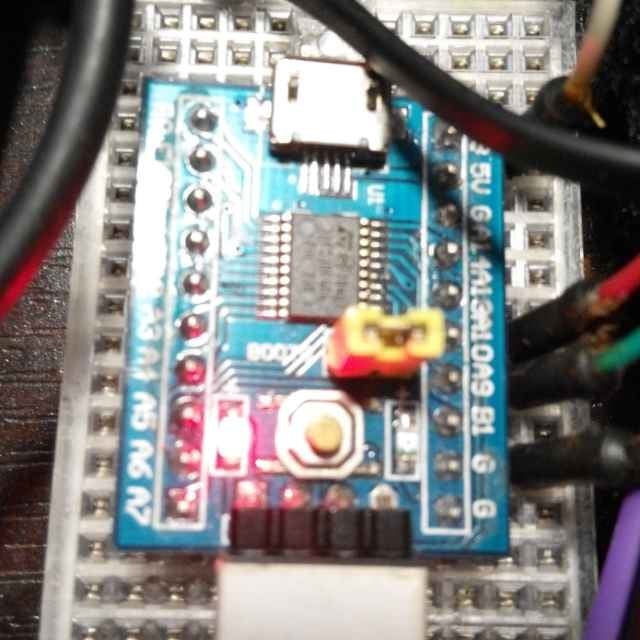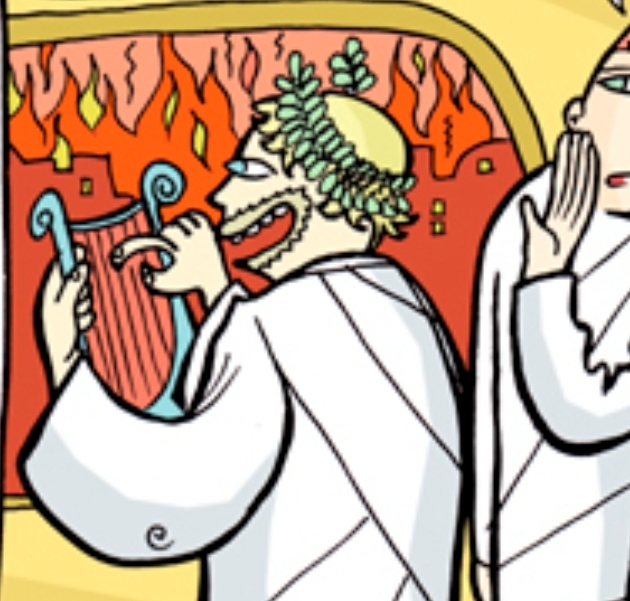Hi, I was writing a campaign setting that was meant to be a heavy metal, sword and sorcery, Robert Howard style setting.
Trouble is I’m stuck for a system, initially I went with DnD 5e just cos it has so many tools for making monsters and encounters, but then I picked PbtA as a particularly troperific system.
Now I’m kinda stuck, cos PbtA doesn’t seem to have as much meat on it. Anyone have any advice or suggestions for systems?
Savage Worlds might be more what you’re looking for. A bit more crunch than PbtA but not as much crunch as 5e or PF2, also there would be less work to convert the setting you’re creating.
@Dee @AccoSpoot @rpg #SW is a good d&d adjacent option between new- and old-school. If you’re looking a more contemporary aesthetic then #Lucky13 is an option.
https://solariangames.com/the-lucky-13-game-engine-is-free-to-use-in-your-own-game/
@Dee @AccoSpoot @rpg and if you want more solidly old-school then #TheSystem is an option
Hi there! Looks like you linked to a Lemmy community using an URL instead of its name, which doesn’t work well for people on different instances. Try fixing it like this: [email protected]
mork borg bills itself as light on rules, heavy on everything else, I wouldn’t recommend it for what you’re thinking of but it’s a great game that’s always worth checking out.
swords of the serpentine is a gumshoe system built from the ground up for sword and sorcery. definitely worth checking out.
If you want something in the vein of Robert Howard and Michael moorcock, barbarians of lemuria takes heavy inspo from both
If it’s sword and sorcery you’re looking for you should definitely check out Barbarians of Lemuria.
I have tried several times to grok PbtA’s appeal and don’t get it. So you’re not alone here.
Having run Root by Magpie Games a few times, I’ve really enjoyed how cinematic it feels. DND combat can be very fun and tactical, but it can also drag as players have to use turns to prepare attacks and then go sit in the back of the line for 10 minutes. PBTA on the other hand always felt quick and quirky with the different playbook abilities. But it’s of course not going to be as deep as a crunchy game, and therefore I dont think it suits OPs needs
I think the problem is that I was playing cinematic-feeling games beginning in the '80s. (Late '80s, to be fair.) A game being “cinematic” isn’t new to me. And the parts of PbtA that are actually new … I just don’t grok the appeal of. As in I don’t like it and I don’t understand what it is people who like it see in it.
I don’t like Savage Worlds, as an example, but I see what some people enjoy in it. It’s just not for me. I can see what they were going for. I can see how someone might enjoy the outcome of it. I just happen to not like the system. Ditto for GURPS or even D&D: I don’t like it, but I see what the appeal could be.
With PbtA I don’t understand it enough to even see what it is people like about it. And I can’t find an “explain like I’m five” overview that closes that comprehension gap. All of the intros seem to presume I know what’s appealing and are intent on showing me how to do it. None of them explain the actual appeal, leaving me lost.
Fair point. Part of it could be I’m younger and a majority of my experience is in 5e. I’ve been branching out lately though, and while I enjoyed PBTA, perhaps I’ll find something that hits that niche better
I’m not a super experienced pbta player, mainly have only run dungeon world, but I love it because how rules light it is and I can just run the game mainly like having a fun conversation with the players. Once players kind of grock how the system works, it can be very freeing in what they can do. Like they don’t have to think too much about specific abilities in their character sheet and can just say/act what makes sense in the situation. “Since I’m behind the baddie,I grab him by his tail and try to pull him away from…” And then there’s a very simple move. “Okay cool, roll+str.”
Then there’s a quick resolution after the quick die roll. It’s fast paced and keeps the scene moving. There’s no rolling on my part. I don’t have to just tick off some hp when players attack or get attacked but can throw in all sorts of fun, random stuff, and players can do the same. I also then don’t have to track whose turn it is with initiative or whatever, I just turn to whoever it makes logical sense to do something or whoever speaks up with another thing they want to do.
I would say the game is definitely not for those that enjoy the tactical combat of games like dnd, but personally I hate that.
Again you’re talking as if rules-light, narrative-focused games are new and unusual. They’ve been around since the (late) '80s. What you are calling “freeing” and new and exciting to you is Tuesday to me. Or any day that ends in ‘y’ really.
That isn’t the part I don’t grok.
What I don’t grok you touched upon, however: the “moves” (and all the other related paraphernalia like the “playbooks”). That whole bass-ackward game mechanism is something that I look at and fail to understand at any level, beginning with “what problem is this trying to solve?” and ending with “how is this intended to be fun?”. I also keep hearing the claim that the game is “hackable” but when I look at “hacks” they seem like “jack up the paint job, insert a whole new game, lower the paint job”. About the only thing constant across the PbtA that I can see is that 2d6 system of bass-ackwards rolling.
I don’t understand why you think the moves and playbooks are bass-ackwards? Do you not like that the GM never rolls? Mechanically, pbta is a class-based system with stats. The main rolling mechanic is 2d6+stat where the moves provide advice for which stat to roll. The playbooks are character sheets customized to each class, saving some time on the player in filling out a generic character sheet.
The results of the 2d6 roll are:
10+: player does what they want (yes)
7-10: player does what they want, but there’s a catch (yes, but)
<7: GM gets to do something (no)
I’m sure other games have done something similar before, but this was my first exposure to this resolution table, and I really liked it. It changed how I GM games. This was also my first experience with a system without some sort of initiative roll, or 1 action per round, or whatever. Play the game by having a fun conversation and players roll dice when there is a conflict. Certainly other folks have been doing this for years, but dungeon world allowed it to click for me.
I’m certainly not going to defend pbta as a perfect system, some moves are too specifically designed that a player focuses on only that move, but overall pbta strikes a good balance between a rules-light and a structured, class-based system.
I call it bass-ackwards when (and I freely admit that I may have this wrong because, as I said, the various attempts to explain the system tend to suck because they’re all breathlessly talking as if narrative, rules-light systems are new and unique to PbtA) you say what you’re going to do and then look up a list of approved “moves” to see which is least distorted when applied to the situation. I don’t really find menus of permitted moves liberating or free-form. I find it rather constraining and ugly.
OK, for some really weird reason I can respond to you but not to @[email protected]. So I’ll put my response to his question here. This is not a response to you, just me working around a weird problem:
Could you tell me a bit more about your problems with moves? Is it just that they’re 2d6 or is it something with the way they’re usually structured?
What they most remind me of are the “drama deck” of games like Torg, Shatterzone, and Masterbook. When those were introduced I saw what they were trying to do: by providing a mechanical benefit to doing something other than “I try to hit him with my sword/gun/whatever”, they were trying to induce people to do more creative things. And while some elements of the drama deck were very effective and innovative ways to reflect the ebb and flow of dramatic situations (not just combat), the “approved actions” part (which is what “moves” look like to me) was, as far as I’m concerned, an abject failure.
The intent of an approved action was simple: if you succeeded at an approved action, you got to draw a new drama card for your hand. The approved actions were things like “attack”, “defend”, “test of wills”, “trick”, “taunt”, etc. And the problem with them was that people, to get that mechanical advantage, would contrive just the DUMBEST THINGS IMAGINABLE to get that sweet, sweet card draw. A lot of situations that were plenty dramatic without the drama deck started becoming farcical instead.
These “moves” look to me like the drama deck’s “approved action”. Only somehow even worse since they’re always there, not switched out on you. They feel like a proverbial “Chinese Restaurant” menu: one from column A, two from column B and then people act as if this somehow liberates them. To me it feels like it constrains them. I don’t even see what problem they were trying to solve by having these, which makes understanding their appeal impossible, as you can imagine.
Could you tell me a bit more about your problems with moves? Is it just that they’re 2d6 or is it something with the way they’re usually structured?
If you’re going for something mostly about the world you play in, the characters, ambiance, … I wouldn’t go to deep with a system. Keep it simple like a d100 basic system or something. Else it will take away from the roleplay and occupy the space in your games. My worst experiences in trpg were with systems with two many steps for a roll, too many rules to keep up with, that kind of stuff. The more time passes the less rules I want, give me a few attributes and skills with a d20 or d100 and let’s go!
How fit are your players? Shadow of the demon lord, for non crunch players Or Pathfinder for crunch fans
- Green Ronin’s Fantasy Age
- Design Ministies Fragged Kingdom
- Goodman Games Dungeon Crawl Classics
i like making lists
For a fairly meaty swords and sorcery system, have you looked at Dungeon Fantasy RPG? It’s GURPS distilled down to just the bits relevant to this kind of setting; so it’ll definitely have the meat you’re after.
Hyperborea if you like a AD&D style game.
Worlds without Number is similar, slightly more modern system.
The out of print modiphius 2d20 Conan could also interest you.
@AccoSpoot I think any number of #OSR or #NSR #ttrpg games would work here as most of them really shine in the context of a sword & sorcery style game. Given the mention of metal, #MorkBorg might be a great place to start!
@hexedpress @AccoSpoot 100% Mörk Börg is Metal as fuck. Super easy on the rules, and adaptable for just about every situation. #ttrpg #morkborg
All the meet in pbta you’re supposed to get on zero session. So you just should play the system as intended. Huge bonus: for 3 PCs in game, you’ll get x4 mind power to create setting.









